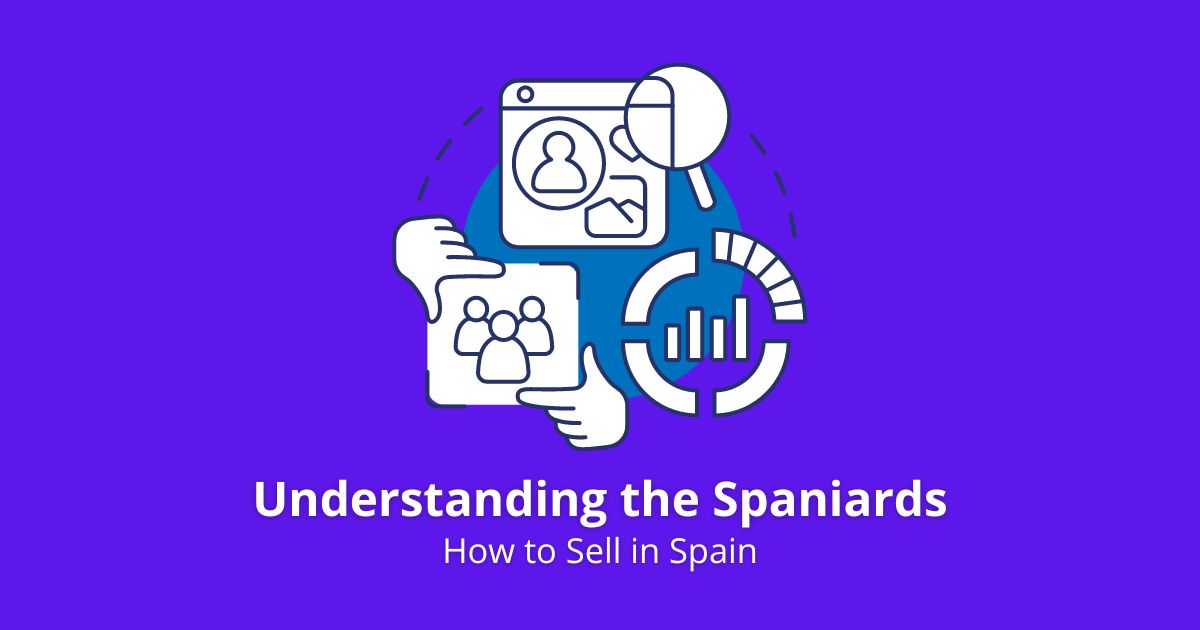Spain, a country rich in history, culture, and tradition, presents a unique landscape for businesses looking to expand their operations. Successfully selling in Spain requires an understanding of its social nuances, economic environment, and consumer behavior. This article explores the key factors that businesses should consider to effectively penetrate the Spanish market.

➜ The Spanish Market Landscape
Spain is the fourth largest economy in the Eurozone and the 14th largest worldwide. The country has experienced significant economic growth since the early 2000s, although it faced challenges during the global financial crisis. Today, Spain’s economy is diverse, with strong sectors including tourism, manufacturing, agriculture, and services. Understanding the economic environment is crucial for any business planning to enter the Spanish market.
➜ Cultural Understanding and Communication
Cultural sensitivity is paramount when doing business in Spain. Spaniards place a high value on personal relationships and trust. Establishing a strong rapport with potential business partners and clients can significantly impact sales success. Meetings often start with casual conversation to build rapport, and it’s important not to rush this process.
Language is another critical factor. While many Spaniards speak English, especially in business contexts, making an effort to communicate in Spanish can create a positive impression. Marketing materials, websites, and customer service should ideally be available in Spanish to cater to the local audience effectively.
➜ Consumer Behavior and Preferences
Spanish consumers have distinct preferences and behaviors that influence their purchasing decisions. They are known for their loyalty to local brands and products, often preferring items with a cultural or regional connection. However, there is also a growing openness to international brands, particularly among younger generations who are more exposed to global trends through digital media.
Price sensitivity is another important aspect. Spaniards appreciate value for money and are often cautious with their spending, especially post the financial crisis. Offering competitive pricing, promotions, and value-added services can attract cost-conscious consumers. If you want to have better results in this Mediterranean country, you should hire SEO in Spain services.
➜ Digital Presence and E-commerce
Spain has a high internet penetration rate, with over 90% of the population using the internet. E-commerce is rapidly growing, making a robust online presence essential for businesses. Spanish consumers are increasingly using smartphones for shopping, so ensuring that websites are mobile-friendly is crucial.
Social media plays a significant role in marketing strategies. Platforms like Facebook, Instagram, and Twitter are popular, and engaging with consumers through these channels can enhance brand visibility and loyalty. Influencer marketing is also effective, as Spaniards tend to trust recommendations from personalities they follow. We recommend you hire multilingual seo services.
➜ Legal and Regulatory Considerations
Understanding the legal and regulatory environment in Spain is critical for business success. Spain has comprehensive consumer protection laws that businesses must adhere to, covering aspects such as product safety, labeling, and advertising. Additionally, the country follows the European Union’s General Data Protection Regulation (GDPR), which governs data privacy and security.
Taxation is another key area. Spain has a complex tax system, and businesses should be aware of the various taxes that may apply, including corporate tax, value-added tax (VAT), and import duties. Consulting with local legal and tax advisors can help navigate these complexities.
➜ Distribution and Logistics
Effective distribution and logistics are essential for reaching Spanish consumers. Spain has a well-developed infrastructure, including ports, airports, and road networks, facilitating efficient transportation of goods. However, businesses should consider regional variations in logistics efficiency.
Partnering with local distributors can provide valuable insights and access to established distribution networks. Understanding regional preferences and demand can also help in optimizing inventory and distribution strategies.
➜ Building Brand Awareness and Loyalty
Brand awareness and loyalty are built over time through consistent quality and customer engagement. Spaniards value quality and reliability, and word-of-mouth recommendations are powerful. Ensuring high product standards and excellent customer service can enhance reputation and encourage repeat business.
Localizing marketing campaigns to resonate with Spanish culture and values can also strengthen brand connection. Celebrating local festivals, sponsoring events, or collaborating with Spanish influencers can increase brand visibility and affinity.
➜ Navigating Economic and Market Trends
Keeping abreast of economic and market trends is vital for making informed business decisions. Spain’s economy is influenced by various factors, including political changes, global economic conditions, and domestic consumer trends. Regular market research and analysis can help businesses adapt their strategies to changing conditions.
Sustainability and social responsibility are increasingly important to Spanish consumers. Businesses that demonstrate a commitment to environmental sustainability and social causes can differentiate themselves and attract a loyal customer base. Initiatives such as eco-friendly products, sustainable sourcing, and community engagement can resonate with the Spanish market.
Conclusion
Selling in Spain requires a multifaceted approach that combines cultural understanding, strategic marketing, and compliance with legal and regulatory frameworks. Building strong relationships, understanding consumer behavior, and leveraging digital platforms are key to success. By tailoring strategies to align with Spanish values and preferences, businesses can effectively penetrate this dynamic market and achieve sustainable growth.
Final Tips
-
Build Relationships: Invest time in building personal connections with partners and customers.
-
Localize Communication: Use Spanish in your marketing and customer interactions.
-
Focus on Value: Offer competitive prices and emphasize value for money.
-
Leverage Digital Channels: Maintain a strong online presence and engage with consumers on social media.
-
Ensure Compliance: Stay informed about legal and regulatory requirements.
-
Adapt to Trends: Monitor market trends and adapt strategies accordingly.
-
Promote Sustainability: Highlight environmental and social responsibility initiatives.
Successfully selling in Spain involves understanding and respecting the unique cultural and economic landscape of the country. With the right approach, businesses can not only enter the Spanish market but thrive within it, building lasting relationships and brand loyalty among Spanish consumers.